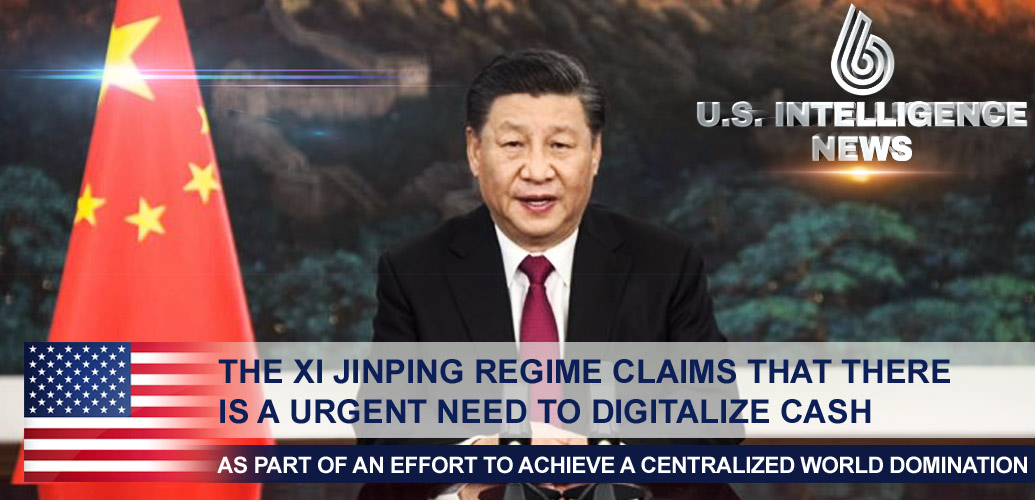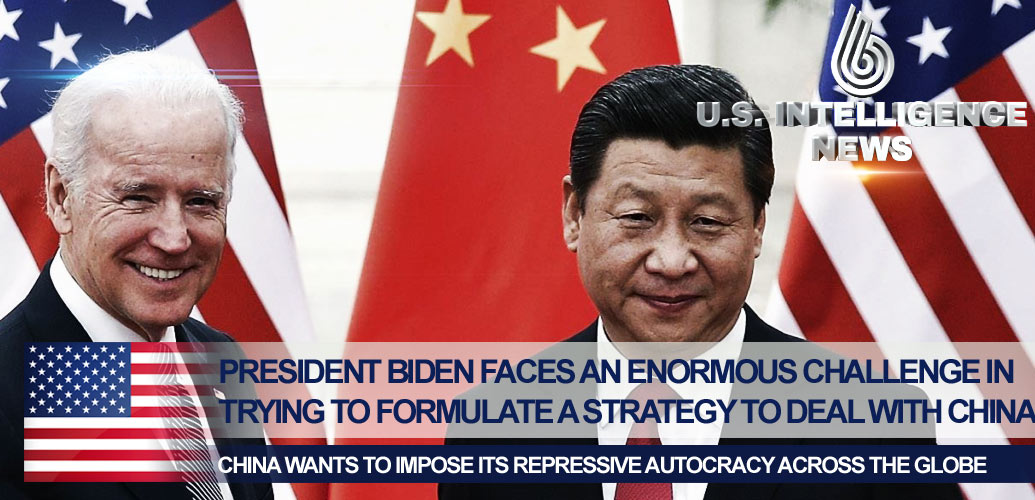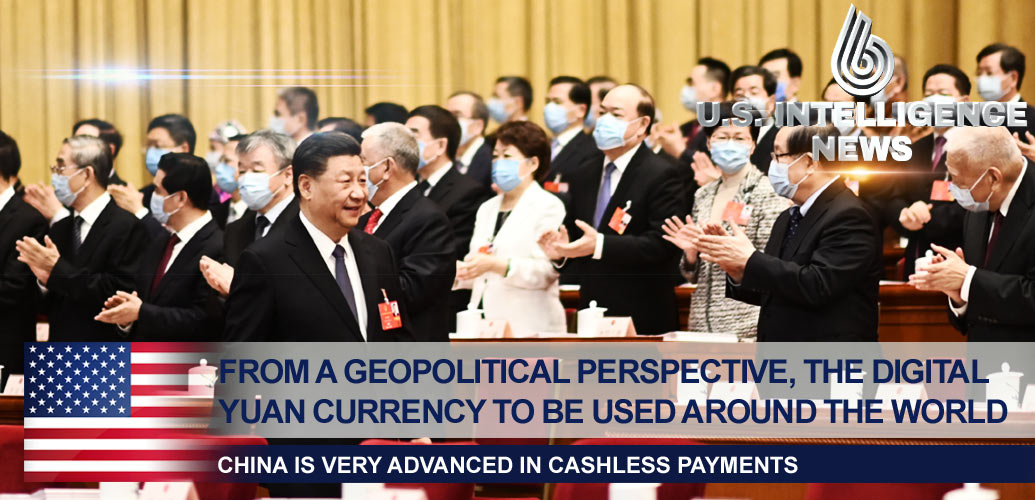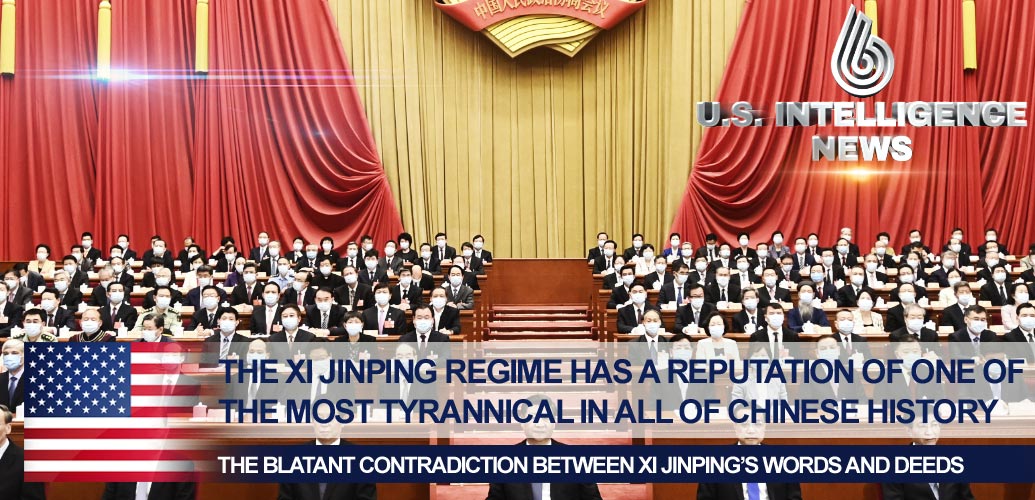
LANGLEY (USIntelNews.com) – The Xi Jinping regime is responsible for the centralization of state control and ultimately leading the world in developing a national digital currency, but the Xi Jinping regime has a reputation of being one of the most tyrannical in all of Chinese history. President Biden faces an enormous challenge in trying to formulate a strategy to deal with China President. Joe Biden‘s first news conference included a warning that China wants to impose its repressive autocracy across the globe. Since Bitcoin’s release, the cryptocurrency has grown and proven itself as a disruptive technology, which received widespread attention. The Chinese regime has approached the prohibition of cryptocurrency methodically, gradually instituting new laws in the past, new requirements to the financial sector, requiring all Chinese-based cryptocurrency exchanges and trading platforms to register with the Ministry of Industry and Information Technology, and the Telecommunication Bureau. The Xi Jinping regime`s actions have had a notable corresponding effect on the international cryptocurrency marketplace. The Xi Jinping regime has taken the most substantial actions to limit domestic cryptocurrency use in what could be described as the systematic installment of laws to discourage cryptocurrency use inside of Chinese borders. China has directed its laws toward the restriction of mechanisms in cryptocurrency allowing individuals to create or mine new currencies. The current answer to the serious question of where Xi Jinping is going, an answer which occupies a ruling position in the ideological sphere, as the People’s Bank of China has been spearheading work on the digital yuan or its official name — the Digital Currency Electronic Payment, a so-called central bank digital currency that aims to replace some of the cash in circulation.
From A Geopolitical Perspective, The Digital Yuan Currency To Be Used Around The World
As part of an effort to achieve a centralized world domination, real world trials are already underway in China, and there are some strategic reasons why they’re going to be a first mover. From a geopolitical perspective, they want to use that digital currency not only in China, but the currency to be used around the world. China is very advanced in cashless payments. The Digital Currency Electronic Payment would be a way to speed that process up. It will be legal tender in China and no interest will be paid on it. The Xi Jinping regime claims that there is a urgent need to digitalize cash and coin as producing and storing these currently is expensive. The regime outlined how a central bank digital currency could make payments more efficient and improve the transmission of monetary policy, and that a digital yuan could help with financial stability through a system of controllable anonymity, i.e. the payments would be anonymous to some degree, but data analysis tools could help the central bank catch illegal activities. The difficulty in evaluating Xi Jinping’s rule lies in the blatant contradiction between Xi Jinping’s words and deeds. The defenders of Xi Jinping ask why, if Xi Jinping were the autocrat that his modern critics claim, even many western observers think that the People’s Bank of China´s efforts could be to increase competition in the payments space and reduce systemic risk.
The Xi Jinping Regime Has A Reputation Of Being One Of The Most Tyrannical In All Of Chinese History
Also, related to the term digital yuan, observers insist that there are two aspects to the question: distribution and then eventually how it will be spent. Distribution will be conducted via a so-called two-tier system. The proposed two-tier model can help to avert disintermediation in the financial sector because the central bank will not be competing with the commercial banks. People’s Bank of China will distribute the digital yuan to commercial banks. One very important exception to the lack of specific references, the commercial banks will be responsible for getting the currency into the hands of consumers. This could include services to allow consumers to exchange their coins and cash for digital yuan. The Xi Jinping regime has already given away millions of dollars worth of the digital currency in real-world trials in a number of cities. There is probably no other monarch in the history of the world that had a keener desire to tie his subjects to the digital yuan than Xi Jinping, even it’s unclear how users might actually hold and spend the digital currency when it is rolled out nationwide.
The Digital Yuan Will Not Replace Bitcoin
Nevertheless, earlier western studies of digital yuan examined Xi Jinping’s ideas but it’s likely commercial banks could integrate similar functionality into their apps, similar to third-party mobile and online payment platforms, and that platforms could have a section of their apps dedicated to digital yuan. Meanwhile, smartphone makers could also create digital yuan wallets for their devices. This kind of thinking which emphasizes the importance of paying attention to the commercial banks, which already have the infrastructure to distribute the digital yuan and it’s better that they do it rather than the central bank, not to waste of existing resources, according to the regime. However what needs to be noted is that the digital yuan will not replace Bitcoin, as Bitcoin is not controlled by any central authority like a central bank, unlike the digital yuan which will be issued by the the People’s Bank of China. Bitcoin is also built on a technology known as Blockchain. It’s unclear at this point what kind of technical make up the digital yuan would have.


 Putin’s Economic Gambit: Russia Aims for Global Oil Dominance Amid Sanctions Pressure
Putin’s Economic Gambit: Russia Aims for Global Oil Dominance Amid Sanctions Pressure  Are North Korean Soldiers a Burden or Asset in Russia’s Offensive?
Are North Korean Soldiers a Burden or Asset in Russia’s Offensive?  As Bitcoin Faces a Market Meltdown, Ethicoin Rises as the Ethical Alternative for a Sustainable Crypto Future!
As Bitcoin Faces a Market Meltdown, Ethicoin Rises as the Ethical Alternative for a Sustainable Crypto Future!  Breaking News: Armenia Facilitates Russia’s Gold Sanctions Evasion in Billion-Dollar Trade Scheme
Breaking News: Armenia Facilitates Russia’s Gold Sanctions Evasion in Billion-Dollar Trade Scheme 





